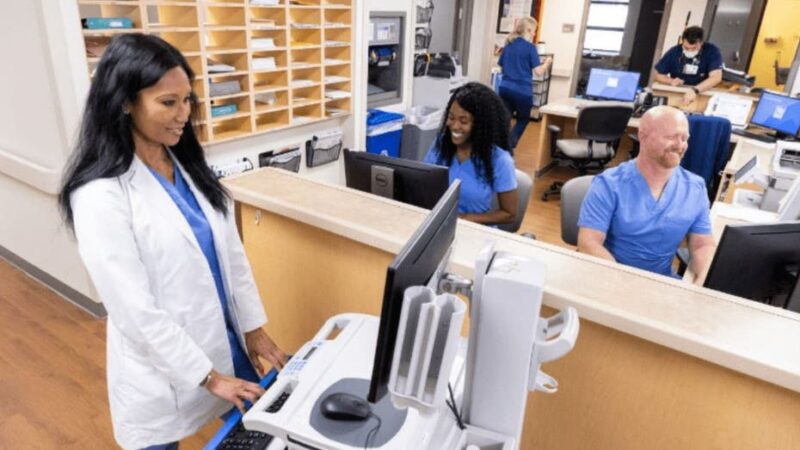The Alarming Impact of Ransomware Attacks on Hospital Patient Care

As we navigate through 2024, the healthcare sector continues to grapple with an overwhelming surge in ransomware attacks and data theft incidents. This year is proving to be as challenging as the previous one, which set a record for healthcare breaches.
The Ascension Ransomware Attack: A Case Study
One of the most notable incidents was the Ascension ransomware attack that occurred in May. This attack had devastating consequences for patient care, highlighting the vulnerability of healthcare institutions to cyber threats.
The Physical Risks of Cyber Attacks
According to a recent report from Microsoft, the ramifications of ransomware attacks extend beyond financial losses; they pose significant risks to patient health. When healthcare providers lose access to critical diagnostic equipment or patient records, the effects can be life-threatening. For instance, during such hospital attacks, the activation of stroke protocols nearly doubles, with confirmed strokes increasing by 113.6% and cardiac arrest cases rising by 81%. Alarmingly, survival rates plummet from 40% to a mere 4.5% under these circumstances.
Strain on Nearby Healthcare Facilities
The repercussions of ransomware incidents are not confined to the affected hospitals. Nearby healthcare facilities also experience a surge in patients requiring urgent care, often without the necessary resources to manage such an influx. Consequently, patients face longer wait times and potentially severe health consequences.
Rural Healthcare: An Underestimated Target
What is particularly concerning is that these cyberattacks are not solely a threat to urban hospitals. Rural health clinics are becoming prime targets due to their limited resources for cybersecurity measures. In many cases, these clinics serve as the sole healthcare option for miles, making a successful ransomware attack devastating for rural communities.
A Rising Epidemic in Healthcare Cyberattacks
Ransomware attacks on healthcare facilities have surged by an astonishing 300% since 2015, placing the sector among the top 10 most targeted industries in the second quarter of 2024. Hackers are drawn to healthcare organizations due to the sensitive nature of the data they store and the significant financial rewards that come from successful attacks. The necessity for hospitals to pay ransoms to ensure patient safety further exacerbates this issue.
Shortcomings in Cybersecurity Measures
Part of the problem lies with healthcare organizations themselves. Many hospitals operate with lower cybersecurity budgets compared to other industries, making them vulnerable to attacks. A lack of dedicated cybersecurity personnel, including chief information security officers or security operations centers, means that cybersecurity often falls by the wayside, treated as just another IT task. Additionally, healthcare professionals typically receive little to no training in cybersecurity, leaving them ill-equipped to recognize phishing attempts.
Protecting Yourself in an Increasingly Vulnerable Landscape
As the threat of cyberattacks on healthcare providers continues to rise, it is essential for patients to take proactive steps to safeguard their personal information and prepare for potential disruptions. Here are some recommended actions:
- Stay informed: Keep up with updates from your healthcare providers regarding any disruptions or data breaches.
- Maintain personal health records: Keep copies of your health records, including medications, allergies, and past surgeries, readily accessible.
- Prepare for medical emergencies: Know nearby alternative healthcare facilities and their accessibility in case your primary facility is affected.
- Practice strong cybersecurity: Use unique passwords and enable two-factor authentication to secure your online accounts.
- Be vigilant against phishing: Install robust antivirus software to protect against malicious links and emails.
- Confirm appointments: Reach out to your healthcare provider to confirm or reschedule appointments if their operations are disrupted.
- Monitor patient portals: Stay updated on your medical records and communication through patient portals, as they can provide critical information during outages.
The Call for Better Cybersecurity in Healthcare
The rise in ransomware attacks on the healthcare sector is a stark reminder that cybercriminals are indifferent to the lives they jeopardize. They are motivated solely by financial gain. It is imperative for healthcare organizations to learn from the experiences of recent years, investing in robust cybersecurity infrastructures and hiring dedicated personnel to protect patient data and systems. With stronger defenses, the goal should be to eliminate the need for ransom payments entirely.

